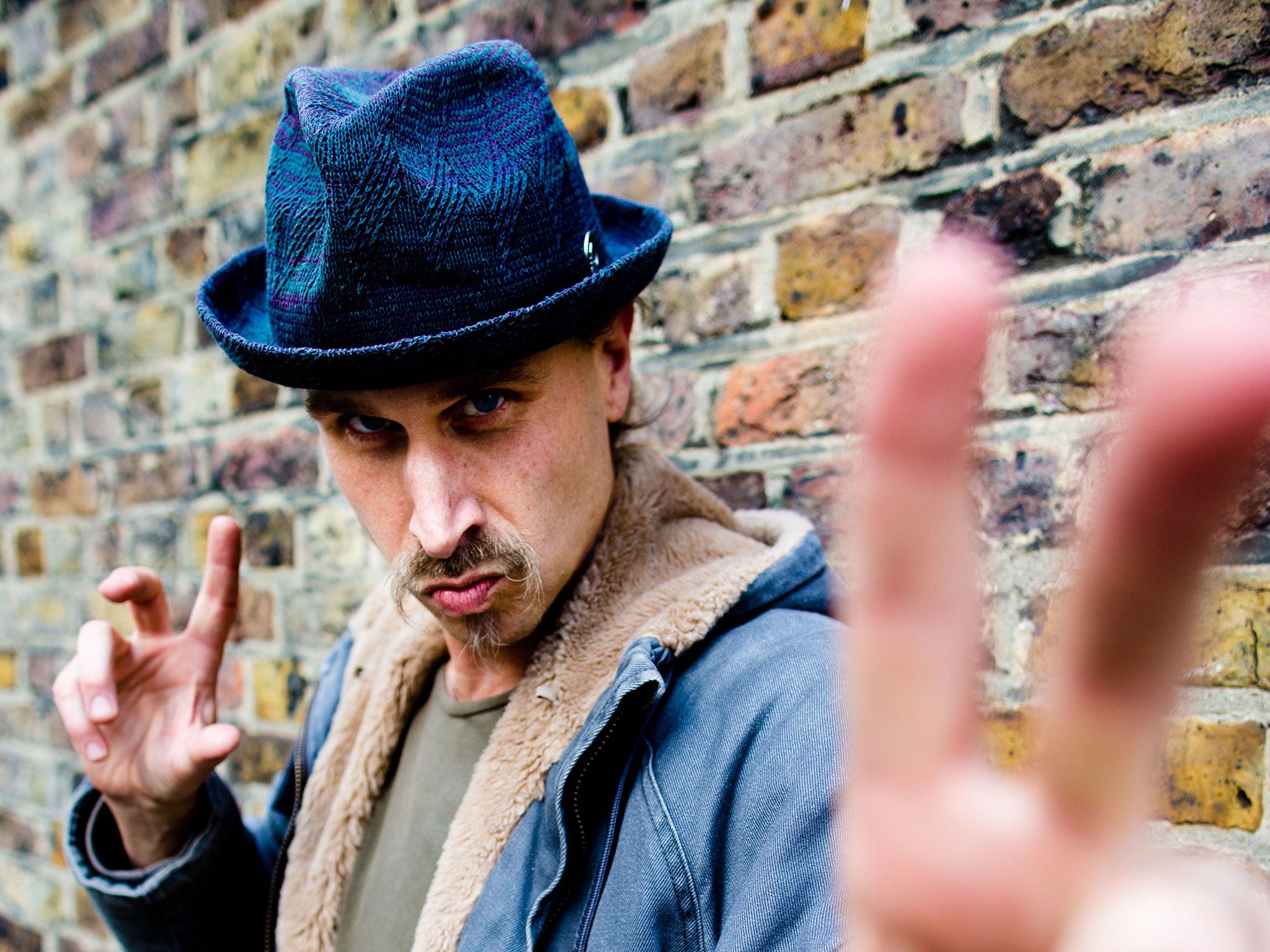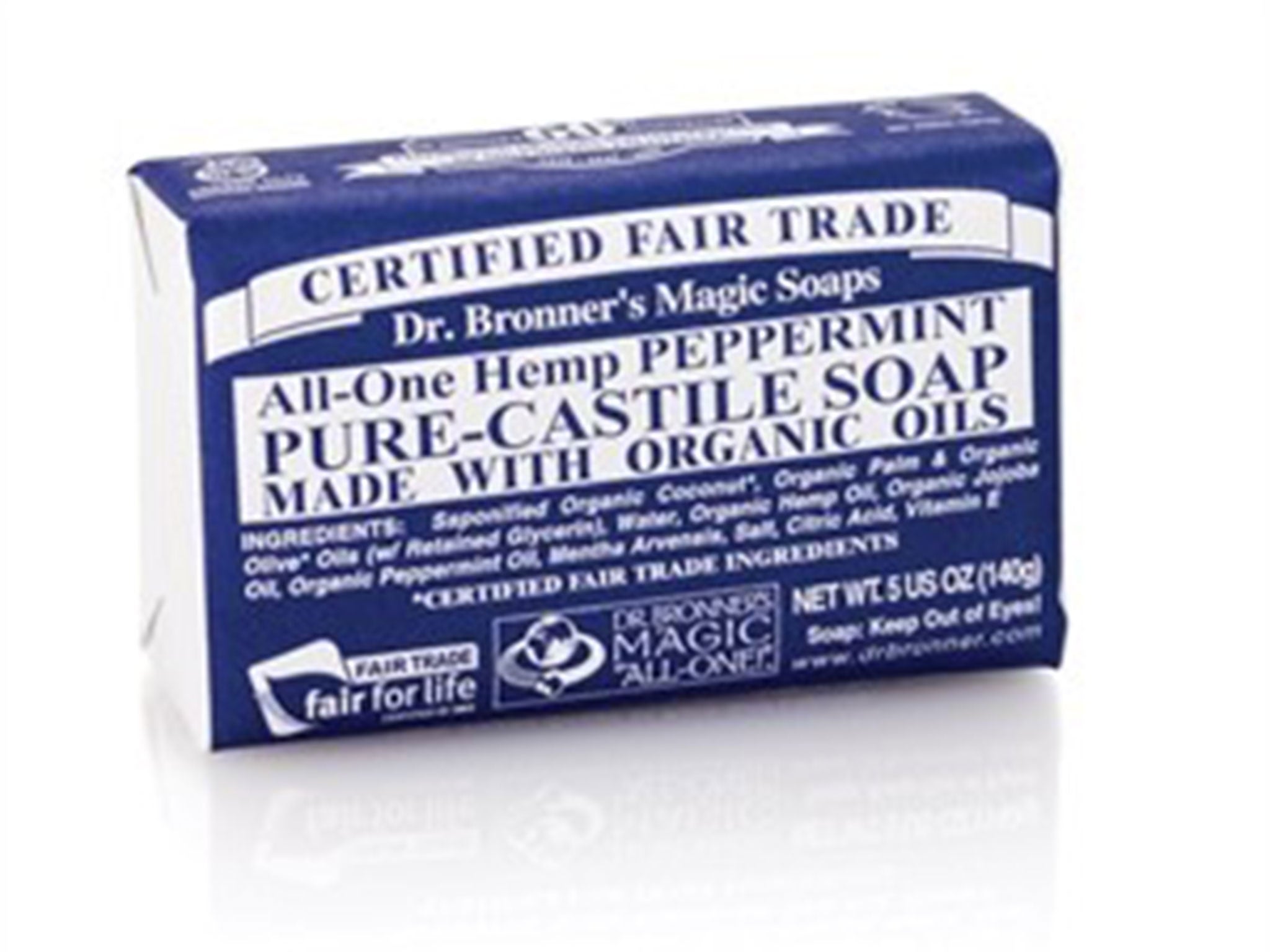How a hemp-clad hippie turned Dr. Bronner's Magic Soap into an unlikely commercial hit
Fans of Bronner's Fair Trade soap include Gwyneth Paltrow and Eminem

Your support helps us to tell the story
From reproductive rights to climate change to Big Tech, The Independent is on the ground when the story is developing. Whether it's investigating the financials of Elon Musk's pro-Trump PAC or producing our latest documentary, 'The A Word', which shines a light on the American women fighting for reproductive rights, we know how important it is to parse out the facts from the messaging.
At such a critical moment in US history, we need reporters on the ground. Your donation allows us to keep sending journalists to speak to both sides of the story.
The Independent is trusted by Americans across the entire political spectrum. And unlike many other quality news outlets, we choose not to lock Americans out of our reporting and analysis with paywalls. We believe quality journalism should be available to everyone, paid for by those who can afford it.
Your support makes all the difference.The questions start almost as soon as he leaves our office. Just who was that hippie guy you were talking to for an hour? You mean the guy with the soul patch dressed in a hemp trilby, hemp coat, hemp trousers and hemp shoes? That's David. He's a soap tycoon from San Diego who turned a family business with roots in Nazi Germany into an unlikely success story. And he only wears a suit when he gets arrested.
David Bronner has come to London to talk about his "magic" soaps, which increasingly feature in style pages and the bathroom cabinets of the well-heeled and well-scrubbed (Gwyneth Paltrow, Drew Barrymore and Eminem are all fans). Since he reluctantly emerged from a cannabis cloud in Amsterdam to take over the business a little over 15 years ago, Bronner has lifted global annual sales from less than £5m to £50m. But first, he wants to talk about Fair Trade, and how it's not always, well, fair.
"It's not like I want to be super-harsh on Kit Kat," he says, presenting a four-fingered bar, that carries the Fair Trade seal. "It's cool that they're doing their thing but in the Nestlé portfolio, this is like 0.1 per cent of the deal." He then pulls from his bag a Boots Mango Bodywash, which also bears the ethical stamp. "The only thing Fair Trade about this is some honey," he adds.
Bronner is pushing for a clearer definition of "fair", yet, in just one sign that Dr. Bronner's Magic Soap washes its hands of convention, it doesn't carry the seal on its labels, despite being wholly Fair Trade. One reason: there isn't room amid the mad jumble of 3,000 words. The microscopic ramblings and maxims make up Bronner's late grandfather's "Essential Vision and Philosophy", or "Moral ABC".
Emanuel Bronner was a rabbi and chemist who fled Germany for America in 1929. His parents remained and would not survive the Holocaust. Mixing a zeal for peace and unity with his family's soap-making knowledge, Emanuel created a product as a "messenger" for his eccentric philosophy. America wasn't ready for it at first. Bronner was locked in an Illinois asylum in 1946, but electric-shock treatment failed to frazzle his worldview and he emerged to build a new life and business in California.
"He believed that if we don't realise our transcendent unity, we're done – we're dead," David, who is 41, says. "And he would not sell you anything unless you wanted to listen to what he had to say." The elder Bronner died in 1997, but every bottle and bar remains a soapbox in his honour. One phrase on the labels begins: "Free Speech is man's only weapon against half-truths that enslave! Full-truth, our only God, unites all brave, if 10 men guard Free Speech brave!!"

Bronner sneaked in a Harvard degree before heading for Amsterdam to find himself. Time in the Dutch capital forged his own activism, with hemp at its core. "I became vegan and more environmentally and socially aware and finally... I let my dad know that I was ready to come in."
Bronner had to grow up fast when his father, Jim, became ill. He died of cancer in 1998, less than a year after his own father's death. David was 24. The company's timeline announces his arrival with the words: "Enter Crazy Fox". David's brother, Michael, who had been teaching in Japan, joined him a year later as co-owner. "Enter the Ninja," the timeline adds.
The brothers rode the organic and healthstore boom, taking their soap global and multiplying revenues by 10 times (sales in Britain are up 30 per cent to more than a million pounds). The range now includes various sprays and ointments, as well as Emanuel’s original castile soaps, which contain hemp oil. The packaging, with what Bronner calls “an old-school, apothecary look,” has become part of the brand’s quirky appeal, but commercial success has not dulled his idealism.
"The second time I got arrested, I was like, 'Oh my God, so Obama promised to base his policy on science rationality, then we were four years into his term and hemp is still treated as a Schedule 1 drug'," Bronner says. "So I harvested some hemp plants inside a cage built to resist police intrusion while it was parked in front of the White House. It took them about three hours to get at me."
Bronner describes his company as "half ethical consumer products company and half NGO fighting battles". He has resisted repeated overtures from big companies. "What's an example of a mission-driven company that has kept its mission after selling," he asks? "There isn't one." The next generation of Bronners are too young to think business – for now. "My daughter's 17 and really amazing but I just recently thought, oh, maybe you might want to engage. She just shaved her head," he says proudly. "She's getting more hardcore."
Join our commenting forum
Join thought-provoking conversations, follow other Independent readers and see their replies
Comments